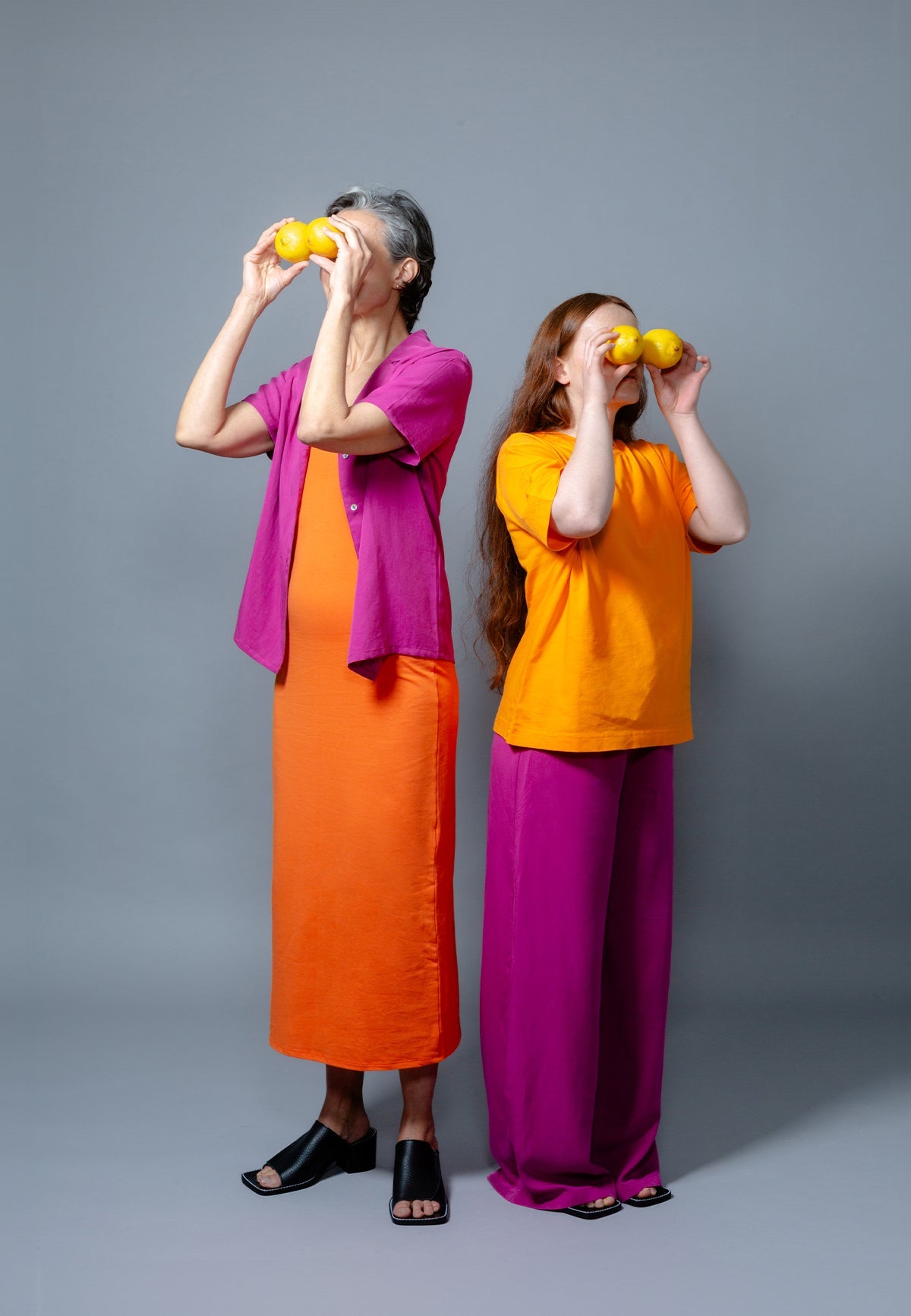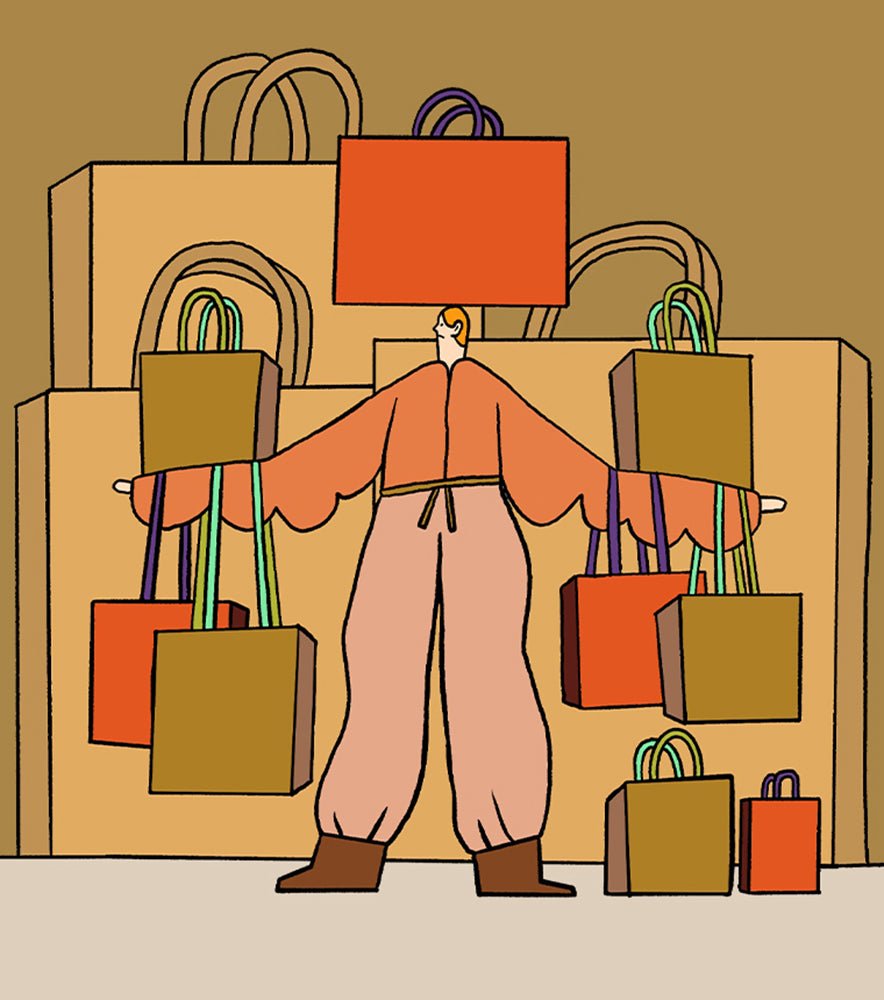No product is created out of thin air, even if it often feels that way in Western consumer societies. Supermarket shelves are magically always full and, thanks to online shopping and express delivery, almost anything is available at almost any time. (Unless it's on lockdown).
But "every consumer decision [...] has an impact on the lives of people in far-off countries, on animals, on the climate, on the environment, or all of the above". So it makes sense to want to do something better with your own shopping. It's not for nothing that we talk about the shopping list as a ballot paper: according to the German Federal Statistical Office, private consumption accounts "for around 53 per cent of the country's gross domestic product".
In principle, there is nothing wrong with expressing one's values and beliefs through private consumption. And, logically, any sustainably produced garment that has not exploited anyone, either human or natural, is significantly better than any conventionally produced garment. Because we also believe that social justice and ethical consumption are essential, MOEON exists.
The fairytale of ethical shopping
However, it does not solve all the problems. "The fairy tale of ethical shopping sounds so nice because it makes things so easy." Unfortunately, it doesn't automatically make us better people. In the end, it remains a privilege to be able to afford this kind of consumption, and it excludes all those who don't have the necessary small change. "The arrogance that goes to some people's heads [...] leads to more and more social exclusion and arrogance". Indeed, studies show that people become more selfish after consuming "ethically correct" products. In some cases, this even leads consumers to steal more or commit fraud.1
Moreover, our economic system is still based on mass consumption. "It is therefore difficult to see how individuals can counter these powerful forces of the status quo," says a report by the United Nations Environment Programme. Consumer change is happening far too slowly to make a real difference.
Furthermore, ethical consumption should not become a substitute for ethical behaviour. If you feel that you have already done all you can to help the climate crisis with every purchase you make, this will often lead to depoliticisation and compensatory behaviour in other areas of your life. Social scientists call this the "patchwork character" of environmental behaviour. "This means that even people with strong ecological convictions often only behave in an environmentally friendly way in certain areas". For example, a patchwork eco may always buy organic food, but fly on holiday twice a year at the same time. Ultimately, buying organic has no major impact on the bottom line, except on the consumer's conscience.
A question of power and responsibility
Furthermore, by focusing solely on ethical consumption, "the well-being of seamstresses in Bangladesh and coffee farmers in Guatemala [...] remains dependent on our purchasing decisions". That's a lot of responsibility to place on the individual. That responsibility should be in the hands of governments and corporations.
Large companies in particular have real power to act. In 2017, through annual surveys of the world's 3,700 largest companies, the non-profit organisation CDP (Carbon Disclosure Project) found that since 1988, more than 70 per cent of global greenhouse gas emissions have been caused by just 100 companies. Half of these emissions are attributable to just 25 companies, including ExxonMobil, Shell, BP and Chevron.2
Putting a price on CO2 could be one way to persuade investors and companies to take a more sustainable economic path. It is therefore important to build political pressure for change. Ways to get involved include demonstrating, working with NGOs, writing, circulating and signing petitions, and networking with other activists. The good thing is: "Even people who can't afford organic products can do this".
Text: Kathrin Weins
Illustration: © Tanya Teibtner

